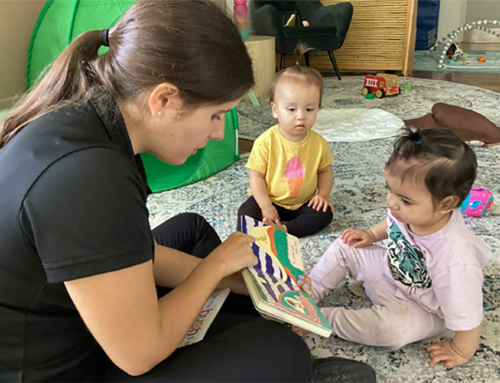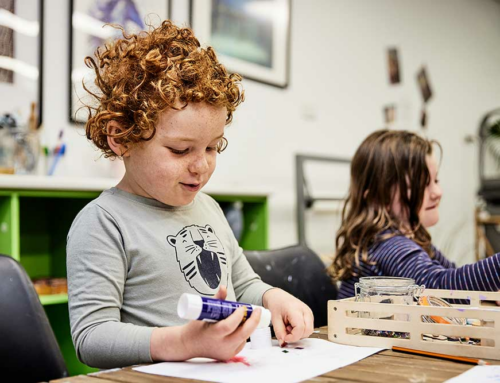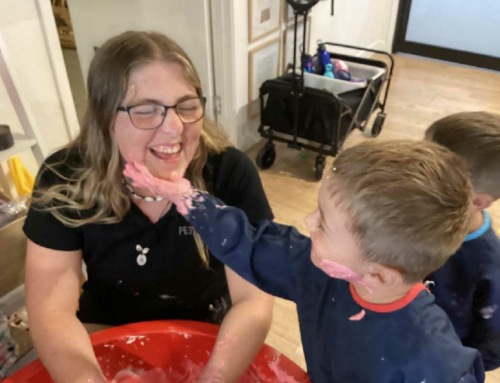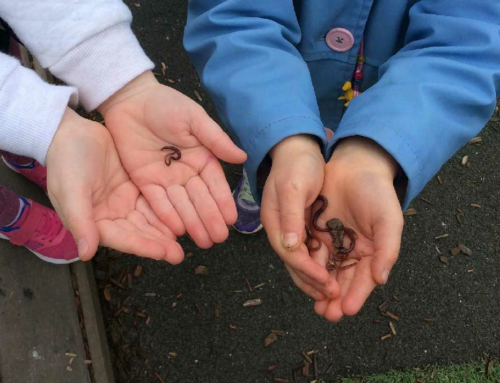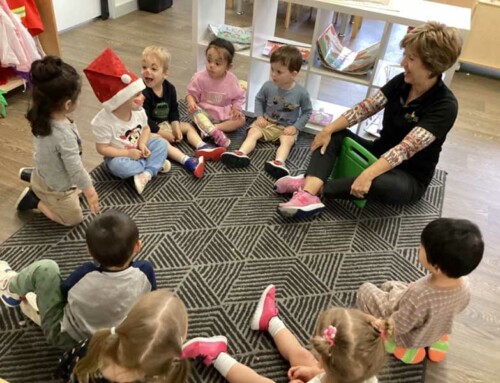For new mums and dads, life is full of challenges. When that day arrives where you must part with your child and return to work or study, it can be difficult to shake that nervous flutter in your gut as you approach the daycare drop off.
For some parents it happens much sooner than they’d like. For others, it can be years in the making and sometimes the first significant separation doesn’t occur until kindergarten or school. But for many families, the first challenging transition is daycare.
Separation anxiety is the fear of being separated from a parent or carer. It is a perfectly natural feeling for children to have when transitioning from home to care, or between different carers or when starting any new adventure away from home, like school.
According to the government service, Health Direct, separation anxiety in children generally peaks between 14-18 months old. It then gradually disappears during early childhood. However, if it persists you should seek professional advice.
If your child experiences childcare separation anxiety try these seven tips to get your child settled:
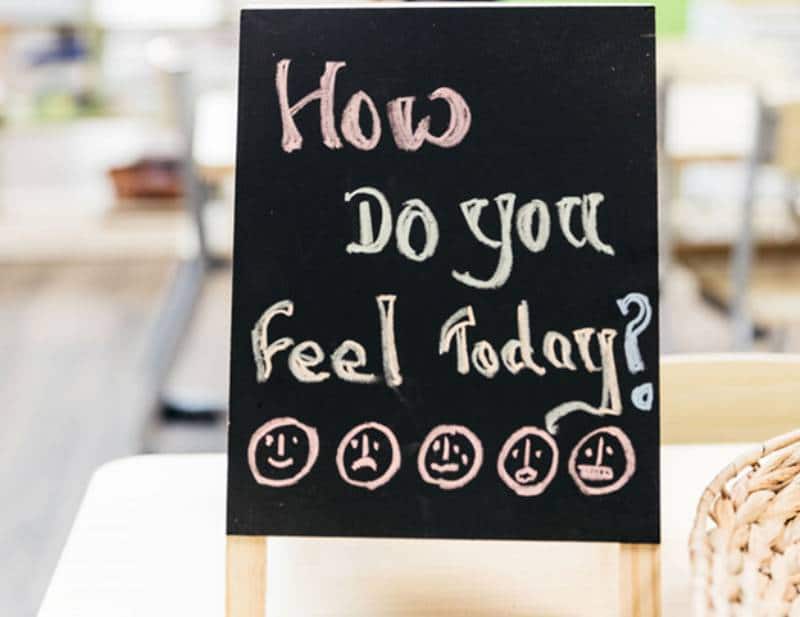
1. Talk to your child about what is happening.
When your child hasn’t yet learnt to talk it can be easy to forget to include them in conversations. They might surprise you by how much they understand and learn through your body language and other signals.
Include your child in conversations about daycare before their first day. Tell them what they will do (and how much fun it will be!). Many centres publish their day-to-day schedules and learning programs, so give your child information on what to expect.
For example, ‘When you arrive, you’ll get to meet other babies and children. You’ll get to play a little before having some morning tea.’
Focus on the fun things they will do and learn. Even if your child is a baby, daycare can be an exciting adventure they can look forward to on daycare days. Let them know when you’ll pick them up too.
‘After lunch, you’ll have a nap with other children and then play some more. Then, I’ll be there to pick you up.’
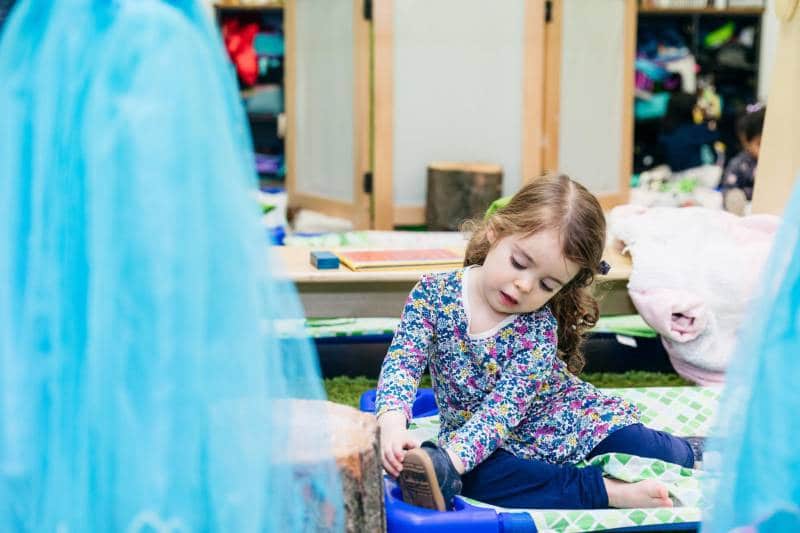
2. Practice separations before daycare begins
Before you drop your child off for that first day at childcare, try practising separations. Ask a trusted family member or friend if they can help you practice. Drop your child off to them for an hour at first and then maybe two then three.
Try this a few times over the course of a few weeks. You may not want to go too far away in case your family member needs you, but then again, they might surprise you and provide you with a much-deserved break.
3. Decrease separation anxiety in babies and toddlers with a goodbye ritual
A goodbye ritual does more than create a stress-free daycare drop off. It builds trust between you and your child. It also provides children with certainty, comfort and reassurance. As well, it helps to make daycare a secure and safe environment.
Saying goodbye the same way every day signals your intent to leave. It’s a small personal gesture that you and your child can share rather than a big drawn-out fanfare.
You might choose to kiss both of their cheeks, give them a big hug and squeeze or slap your hands together for a high five. No matter what you and your child decide, be sure to repeat it each time, so your child knows that it is time to say goodbye.
Once you’ve enacted the ritual, it’s time to go. Don’t linger to see how your child reacts as this sends mixed signals. Once you’ve handed your child over to their educator, keep the drop off short and sweet.
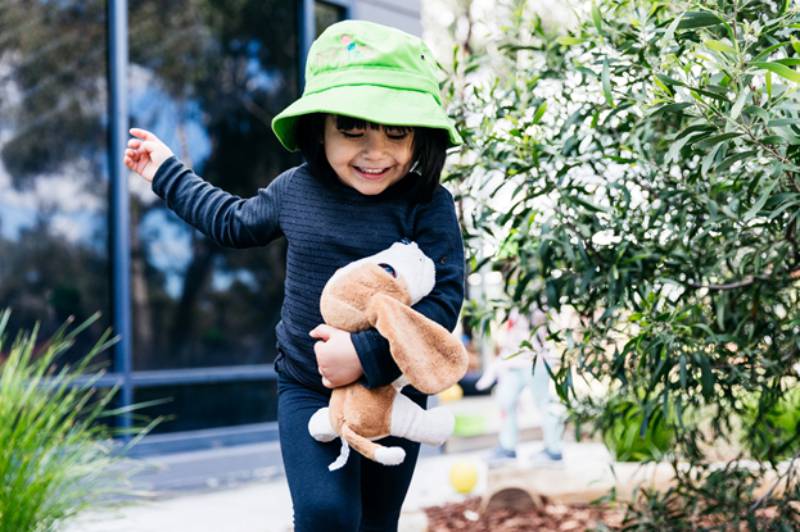
4. Bring a special cuddly toy or small blanket (comforter)
For many children, a comforter is a special cuddly toy (plushie) or a blanket that they like to hug. Sometimes, it’s a shirt or a family photo. The smell and other sensations remind your child of home and you.
When they hold their special comforter, it helps to calm them and settle them down similar to how a pacifier calms a baby. They may already hug this special item at bedtime to help them sleep.
Many childcare and daycare centres discourage families from bringing personal toys as there are plenty to share. At Petit Early Learning Journey your child is welcome to bring a special comforter such as a cuddly toy or a blanket.
If your child doesn’t have a favourite comforter, find out what daycare toys they favour. Ask your daycare to make one available for your child’s arrival. You can learn more about what to bring and expect on your child’s first day in Petit ELJ’s Family Handbook.
5. Create a separation routine in child care over a gradual transition period
At Petit ELJ, we encourage families to stay and participate during the first few days while your child settles into their new environment. Spending time at daycare before separation can show your child that it’s a trusted place where they can feel safe.
Sometimes a gradual introduction to daycare works better. Talk to your daycare centre about slowly transitioning your child. You may be able to increase your child’s daycare over a couple of weeks from a few hours to the total care time you require.
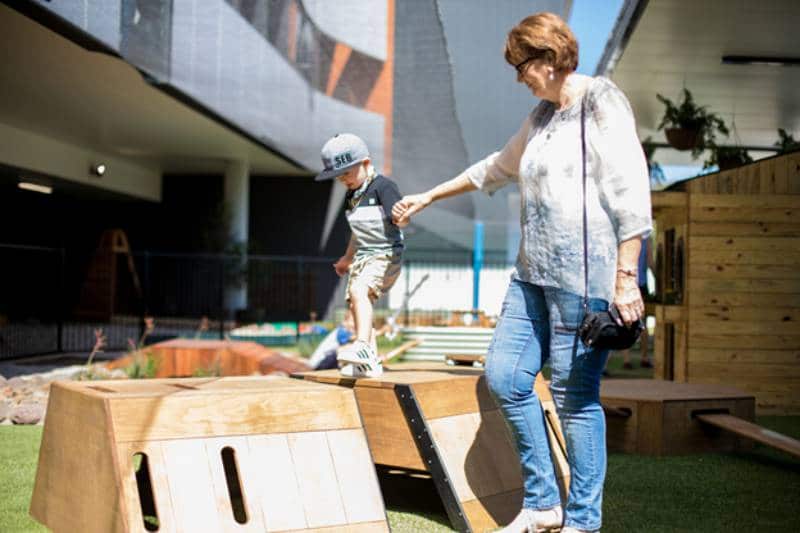
6. Be resilient
That first day can be difficult for your child and for you. When you drop your child off at daycare, it’s incredible how much they will pick up on your sensibilities. So, while you may also feel nervous, it’s essential that you project resilience.
Your child watches you regularly to assess your mood changes, and they often take their signals from you. Children fear the unknown, so reassure your child that they will be fine and don’t forget to talk to them about what to expect.
7. Talk to your child’s educators
Informed educators make transitions more comfortable. At Petit ELJ we encourage you to discuss your child’s likes and dislikes, rituals, culture and home experiences. The information you provide helps us to create a continuity of care to ease their transition.
Do you remember your daycare drop offs?
Make the day your child goes to care all about daycare. Think back to how you felt on your first day. Remind them of what they will be doing and reassure them that they will be fine.
If your child is sensitive, give them support and acknowledge their fears but also encourage them to be brave and try new experiences. Be strong and lead by example.
Keep in mind that it is important to say goodbye and not linger when it is time to go. And after a reasonable amount of time, if your child is still suffering from daycare separation anxiety, talk to your educators for more advice.
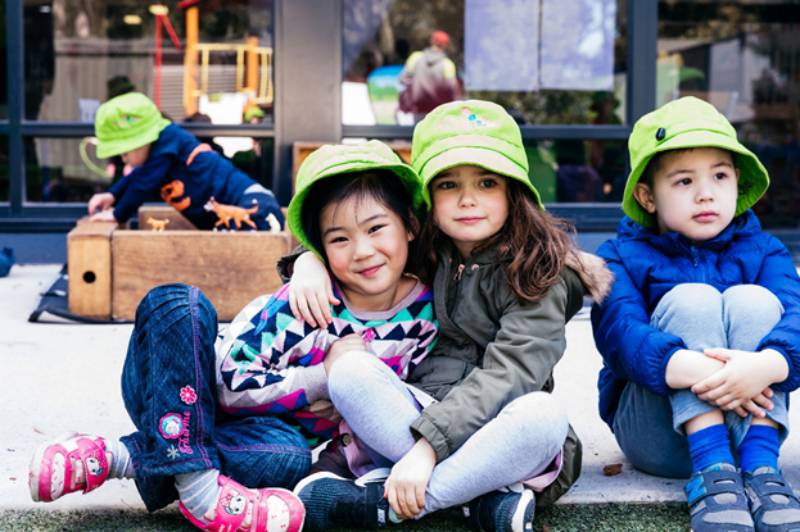
Find out more about transitioning your child to a Petit Early Learning Journey Centre
At Petit ELJ, we’d love to show you and your child around your nearest centre. Bring your child along to meet with our educators and experience the centre too. Our approach to routine is to show enjoyment to make your child feel safe and secure.
We also encourage open and honest conversations and practice compassion honouring the feelings, thoughts and choices of the children in our care. Come visit a Petit centre today and learn how we can help with your child’s daycare drop off.

